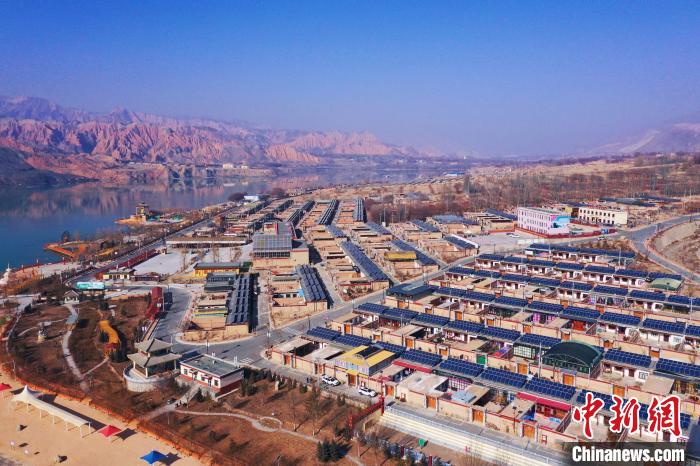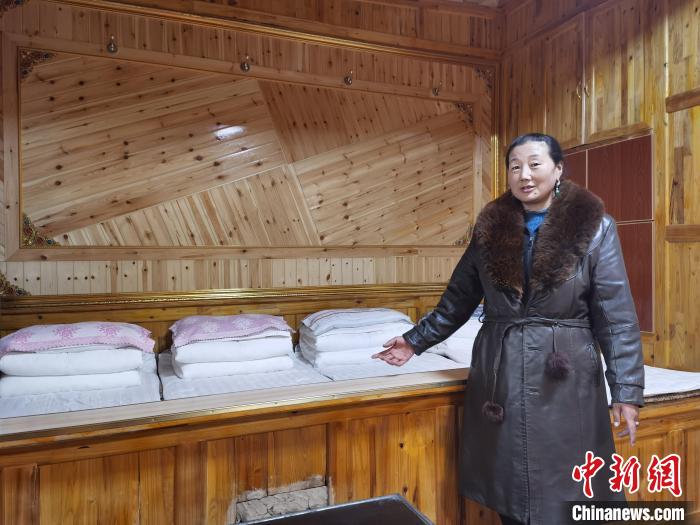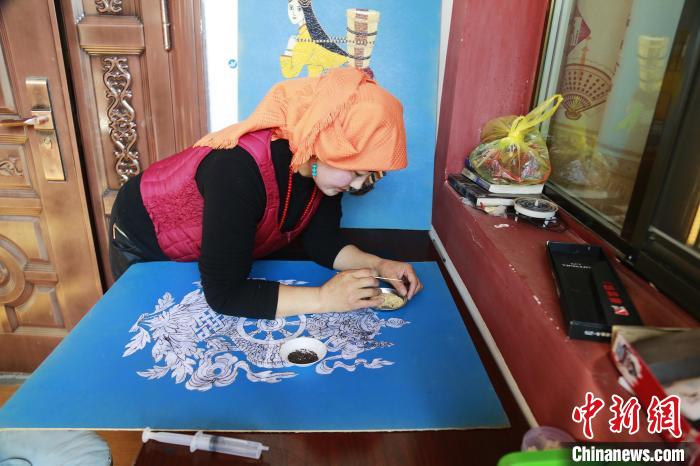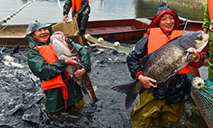Tourism industry brings fortune to newly relocated village in NW China’s Qinghai
Norgyatso, who used to be a farmer residing in a mountain village in northwest China’s Qinghai Province, now runs her own agritainment business in Dekyi village, a relocated village situated in the province.

Aerial photo shows Dekyi village, Jainca county, Huangnan Tibetan Autonomous Prefecture, northwest China’s Qinghai Province. (Chinanews.com/Ma Yingyan)
Before moving to the village, which is located on the bank of the Yellow River in Jainca county of Huangnan Tibetan Autonomous Prefecture, Norgyatso and her husband earned no more than 10,000 yuan (about $1,567.8) a year through farming.
Norgyatso never expected that she could earn the 60,000 yuan she has now earned in half a year of running her agritainment business.
“Life was difficult in the past. Now I run an agritainment business in the village,” Norgyatso said, explaining that her business picks up starting from May every year when more tourists normally begin to flock to the village.
Shartso, another villager, earns a monthly income of about 3,000 yuan by creating artworks for a local company using grains. Shartso, who started learning the techniques for making such grain paintings in 2018, usually makes grain artworks at her home and then sends the pieces she finishes to the company one by one.
In 2016, the Jainca government invested 67.3 million yuan to build a new village at a selected relocation site, constructing 251 houses for 946 Tibetan herdsmen and farmers, including 893 poverty-stricken people, from 30 remote villages.

A local villager named Norgyatso introduces her agritainment facilities in Dekyi village, Jainca county, Huangnan Tibetan Autonomous Prefecture, northwest China’s Qinghai Province. (Chinanews.com/Qi Zengbei)
Thanks to the relocation project, the villagers now have better access to housing, water, electricity, roads, communications and other infrastructure and have since bid farewell to their poor living conditions.
After the relocation plans were completed, the village took advantage of its unique geographical location to vigorously develop a rural tourism industry. Moreover, the village has built an artificial beach near the riverside, which has attracted numerous visitors. After much effort, the village has now been transformed into a popular tourist destination.
In addition to the tourism sector, the photovoltaic industry has been introduced to the village as well, generating an annual income of about 5,000 yuan for each household.

A local villager named Shartso is busy making a grain painting in Dekyi village, Jainca county, Huangnan Tibetan Autonomous Prefecture, northwest China’s Qinghai Province. (Chinanews.com/Ma Yingyan)
Before the relocation project, the average annual per capita income of residents living in the village was 3,258 yuan. Now the figure has reached 12,945 yuan, an increase representing about three times the previous incomes enjoyed by the villagers.
Tong Bartso, deputy head of Jainca’s rural vitalization bureau, said the county will expand its characteristic industries, such as leisure agriculture and animal husbandry, in rural areas to provide additional support for the people relocated from inhospitable areas and in an attempt to help them increase their income.
Photos
Related Stories
- Tibetan girl pursues football dream in NW China
- Tibet calls on citizens to reduce Tibetan New Year activities
- Tibetan New Year activities called off amid virus outbreak
- China's first Tibetan medicine int'l cooperation base inaugurated in Qinghai
- CPC official stresses development, stability in Tibetan-inhabited areas
- 800 volunteers in Diqing Tibetan autonomous prefecture to provide free medical services
- Senior CPC official meets Tibetan monks receiving senior academic title
Copyright © 2021 People's Daily Online. All Rights Reserved.










